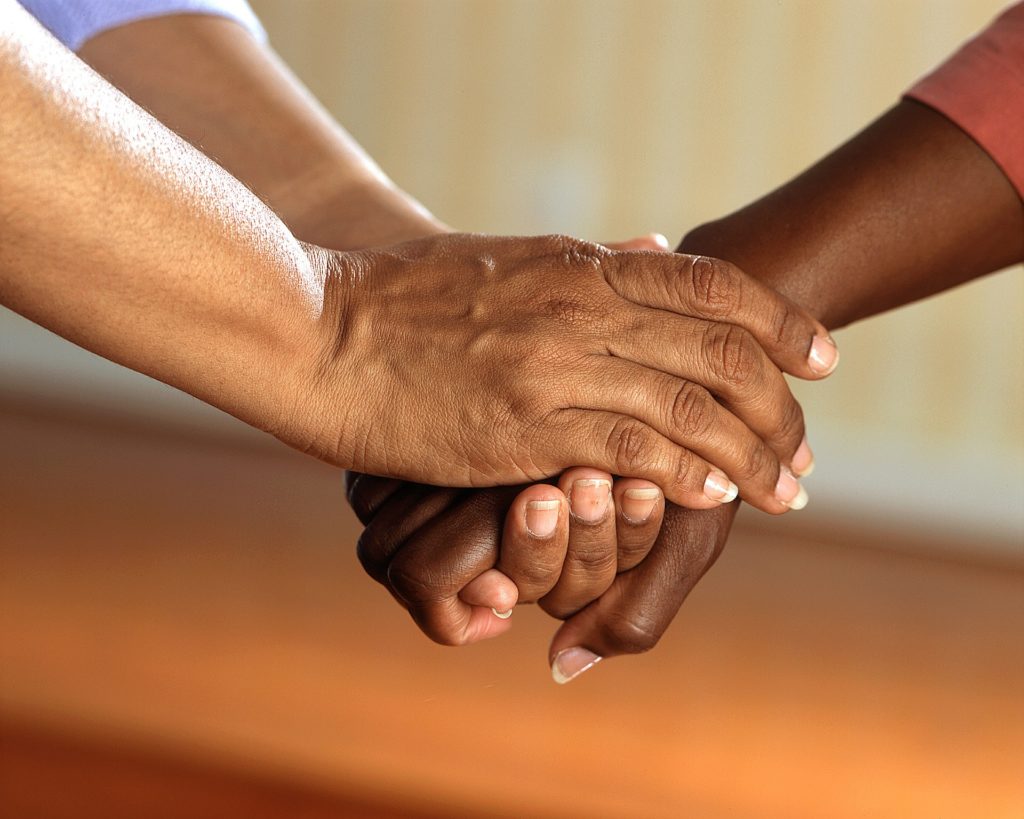- Calls to this hotline are currently being directed to Within Health, Fay or Eating Disorder Solutions
- Representatives are standing by 24/7 to help answer your questions
- All calls are confidential and HIPAA compliant
- There is no obligation or cost to call
- Eating Disorder Hope does not receive any commissions or fees dependent upon which provider you select
- Additional treatment providers are located on our directory or samhsa.gov
Can Interventionists Help Someone in Denial About Their Eating Disorder?

Is your loved one suffering from an eating disorder but unwilling to admit it? Admitting the need for help is the first step down the road to recovering from an eating disorder. Tragically, however, denial is a common symptom among people with ED, leaving family, and loved ones frustrated and unsure of how to help [1]. This is where interventionists can step in and help guide your loved one towards the path to recovery.
Denial and Eating Disorders
First, it’s important to understand your loved one is not the first to be in denial about their eating disorder. Quite the opposite, actually. Denial has long been a feature of eating disorders (especially anorexia nervosa), with one report finding that 80 percent of anorexia nervosa patients surveyed were in denial of their illness [2].
Back in 1873, Ernest-Charles Lasègue, a French physician who was one of the first doctors to describe anorexia nervosa, wrote of the disorder: “’I do not suffer and must then be well,’ is the monotonous formula” [3].
Why Is Denial So Common?
While it’s difficult to see a loved one suffer in denial, it’s critical to understand that denial is one of the symptoms of the disorder, not necessarily a conscious choice. This lack of insight into and denial of the illness is officially termed “anosognosia.” Researchers and doctors have concluded that anosognosia (denial) is anatomical and caused by damage to the brain (most likely from malnutrition) [4].
What are Eating Disorder Interventionists?
Eating disorder interventionists are professionals trained to come alongside individuals who are in denial about their eating disorder. The interventionist helps the individual with ED see their problem and points them towards recovery.
Interventionists also play a big part in educating family members about eating disorders and showing them how they can better support their loved one through the recovery process.
How Do Eating Disorder Interventionists Work?
The first step in the eating disorder intervention process is to seek help. If your family member or loved one has an eating disorder but is unwilling to admit it, you don’t have to sit back and watch them suffer in denial. You can do something to help!
 Do some research and find an eating disorder intervention network with interventionists in your area. Once you’ve identified an interventionist group, contact them and let them know what’s going on.
Do some research and find an eating disorder intervention network with interventionists in your area. Once you’ve identified an interventionist group, contact them and let them know what’s going on.
After speaking directly with the interventionist specialist, they will create an action plan specifically designed to motivate your loved one to recognize his or her problem and enter treatment. The intervention plan will include factors like the setting, participants involved (family members, etc.), and a specific approach best suited to your loved one’s needs.
Before the intervention, the specialist may spend time educating you and your family on eating disorders and how you can best support and help your loved one during treatment.
The intervention itself will most likely involve a counseling session/s with mediation, so family and friends have a chance to share how the disorder’s destructive behavior has impacted them. If the individual agrees to treatment, the interventionist will typically coordinate the enrollment and entrance into a treatment program.
Interventionists help countless people recognize their illness and accept their need for help. In fact, one ED interventionist network shares that they consistently see an 89 percent success rate with their intervention program [5].
If your loved one is in denial about their eating disorder, take the first step today and find a professional eating disorder interventionist in your area who can help.
References:
[1] Dealing with Denial in Anorexia Nervosa. Eating Disorders Review. (2017, February 13). https://eatingdisordersreview.com/dealing-with-denial-in-anorexia-nervosa/. [2] Vandereycken, W. (2006), Denial of illness in anorexia nervosa—a conceptual review: part 1 diagnostic significance and assessment. Eur. Eat. Disorders Rev., 14: 341-351. doi:10.1002/erv.721. [3] Muhlheim, L. (2019, October 18). When a Loved One With Anorexia Does Not Believe They Are Ill. Verywell Mind. https://www.verywellmind.com/anosognosia-and-anorexia-3573545. [4] Vandereycken, W. (2006), Denial of illness in anorexia nervosa—a conceptual review: part 1 diagnostic significance and assessment. Eur. Eat. Disorders Rev., 14: 341-351. doi:10.1002/erv.721 [5] Eating Disorder Interventions in FL, NJ and ME. Guardian Recovery Network. (2019, December 13). https://www.guardianrecoverynetwork.com/eating-disorder-interventions/. Sarah Musick is a freelance writer who specializes in eating disorder awareness and education. After battling with a 4-years long eating disorder, she made it her mission to help others find hope and healing in recovery.
Sarah Musick is a freelance writer who specializes in eating disorder awareness and education. After battling with a 4-years long eating disorder, she made it her mission to help others find hope and healing in recovery.
Her work has been featured on numerous eating disorder blogs and websites. When she’s not writing, Sarah is off traveling the world with her husband.
The opinions and views of our guest contributors are shared to provide a broad perspective on eating disorders. These are not necessarily the views of Eating Disorder Hope, but an effort to offer a discussion of various issues by different concerned individuals.
We at Eating Disorder Hope understand that eating disorders result from a combination of environmental and genetic factors. If you or a loved one are suffering from an eating disorder, please know that there is hope for you, and seek immediate professional help.
Published July 9, 2020, on EatingDisorderHope.com
Reviewed & Approved on July 9, 2020, by Jacquelyn Ekern MS, LPC

The EatingDisorderHope.com editorial team comprises experienced writers, editors, and medical reviewers specializing in eating disorders, treatment, and mental and behavioral health.

